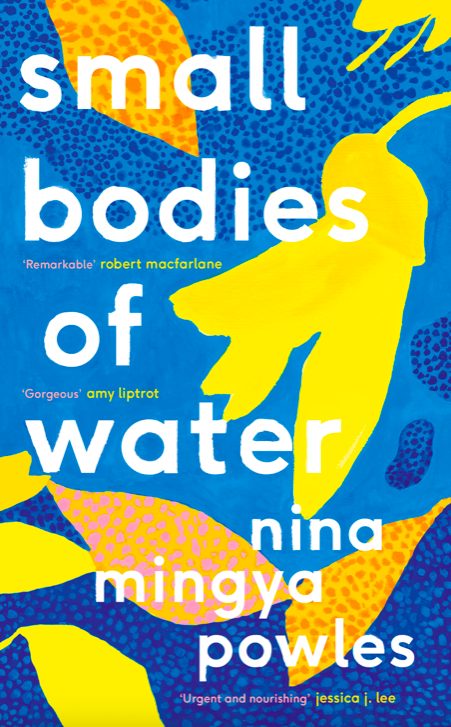Nina Mingya Powles was born in New Zealand, spent her childhood moving between the US, China and NZ, and she now lives in London. In Small Bodies of Water, she explores the concepts of identity, belonging and race through a series of loosely connected essays. The book won her the Nan Shepherd Prize for Nature Writing in 2019. This may seem surprising at first, as the book isn’t overtly or obviously a ‘nature writing’ piece. But natural elements, like the bodies of water, the trees of the different countries she’s inhabited, and her experiments with growing certain plants all add depth of a natural variety to every story.
This part-memoir, part-reflective book does not follow chronology of time or place so the essays may be read in any order without loss. This adds a certain sense of adventure to the book. Powles explores what it means to straddle multiple cultures, languages, and landscapes. And anyone who has moved cities or even continents will particularly relate to her observations and the emotional journey the mind undertakes with each move. Like the mind, the ‘bodies of water’ she references also shift and change. Sometimes they are delicate – for example, when she talks of tracing raindrops on a car window. At other times, they are vast – the beaches of New Zealand.
But most of all, they are intimate with the author; especially when she seeks out lakes and ponds in the wild to swim in. Sometimes she swims with other women who form an upspoken sisterhood. At other times, she swims alone and in these moments she tries to form the threads in her life that span across continents. The pace of the book too, speeds up and slows down in turn, like tides.
The author’s account of her life depicts a certain vulnerability, which brings the reader close and invites them to peek into another’s life. A most intimate read.
